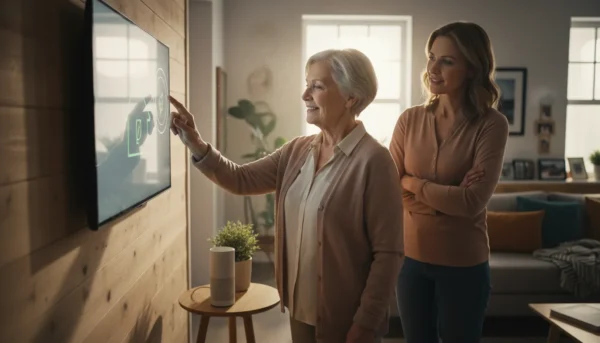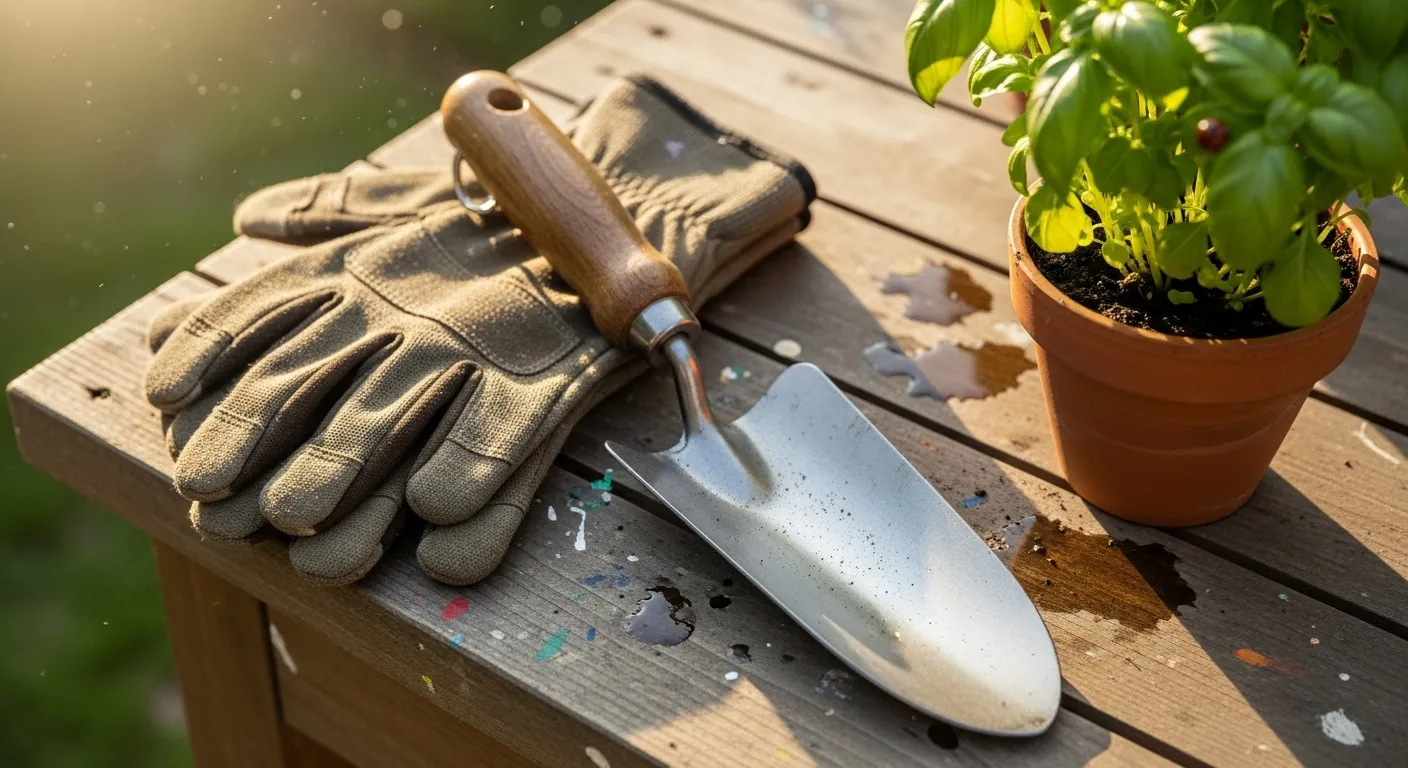
Retirement is a chapter of life filled with new opportunities for growth, joy, and self-discovery. As your daily schedule shifts away from the demands of a career, you have the precious gift of time to invest in yourself. One of the most powerful ways to do this is by embracing meaningful hobbies. Engaging in activities you love isn’t just about passing the time; it’s a vital practice for nurturing your mind, spirit, and overall happiness.
The right activities for mental health can provide a sense of purpose, keep your mind sharp, foster social connections, and reduce feelings of stress or anxiety. They give structure to your days and offer a wonderful sense of accomplishment. If you’re looking for engaging hobbies for retirees that do more than just entertain, this list is for you. Here are ten wonderful, meaningful hobbies that are perfect for promoting your mental well-being.
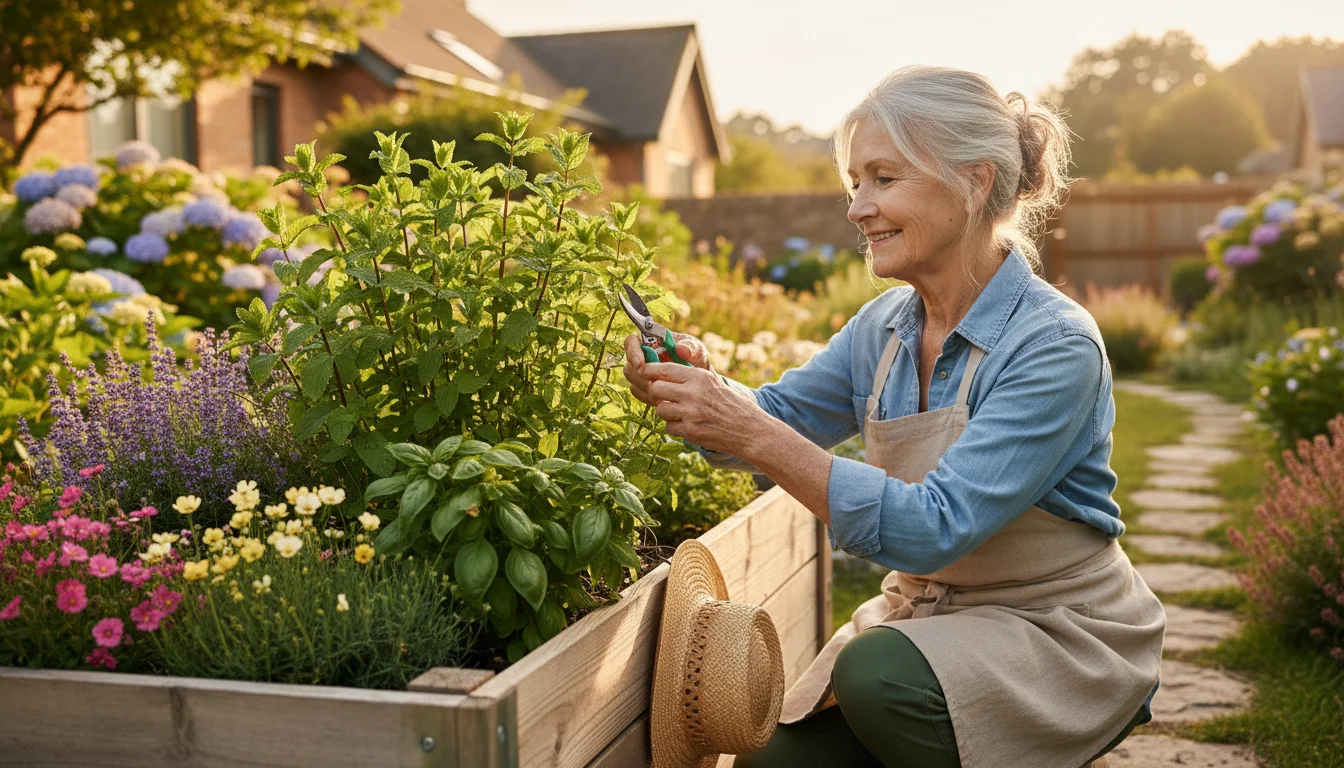
Rediscover the Joy of Gardening
The ‘Why’: Gardening is a beautiful, multi-sensory experience that connects you directly with the rhythms of nature. The gentle physical activity involved releases endorphins, which are natural mood elevators. Tending to plants and watching them grow provides a profound sense of purpose and accomplishment. This is one of the most rewarding mental well-being activities, as it reduces stress and encourages mindfulness by focusing your attention on the task at hand.
The ‘How’:
– Start small and accessible. You don’t need a large plot of land. Begin with a few pots on your patio, a sunny windowsill for herbs, or a raised garden bed, which can reduce the need for bending and kneeling.
– Choose easy-to-grow plants. Consider starting with hardy herbs like mint and rosemary, cheerful flowers like marigolds, or simple vegetables like lettuce and cherry tomatoes.
– Join a community garden. If you lack space at home or crave social interaction, a community garden is a fantastic option. It offers a chance to share tips, make new friends, and work alongside others toward a common goal.

Tell Your Story Through Memoir Writing or Journaling
The ‘Why’: Your life is a rich tapestry of experiences, wisdom, and memories. Writing them down is not only a way to preserve your legacy for future generations but also a powerful therapeutic tool. The act of reflecting on your life can help you process past events, appreciate your journey, and gain new perspectives. It organizes your thoughts, clarifies your feelings, and fosters a deep sense of self-awareness and gratitude.
The ‘How’:
– Find your medium. A beautiful notebook and a comfortable pen are all you need. If you prefer typing, a simple document on a computer or tablet works perfectly.
– Don’t worry about perfection. The goal is not to write a bestseller; it’s to express yourself. Forget about grammar and spelling initially. Just let your thoughts flow freely onto the page.
– Use prompts to get started. If you feel stuck, use prompts like, “What is your earliest memory?” or “Describe a major turning point in your life.” You can also start by simply writing down what you did that day and how it made you feel.
– Consider a class. Many senior centers and community colleges offer memoir writing workshops, which provide structure and a supportive community.
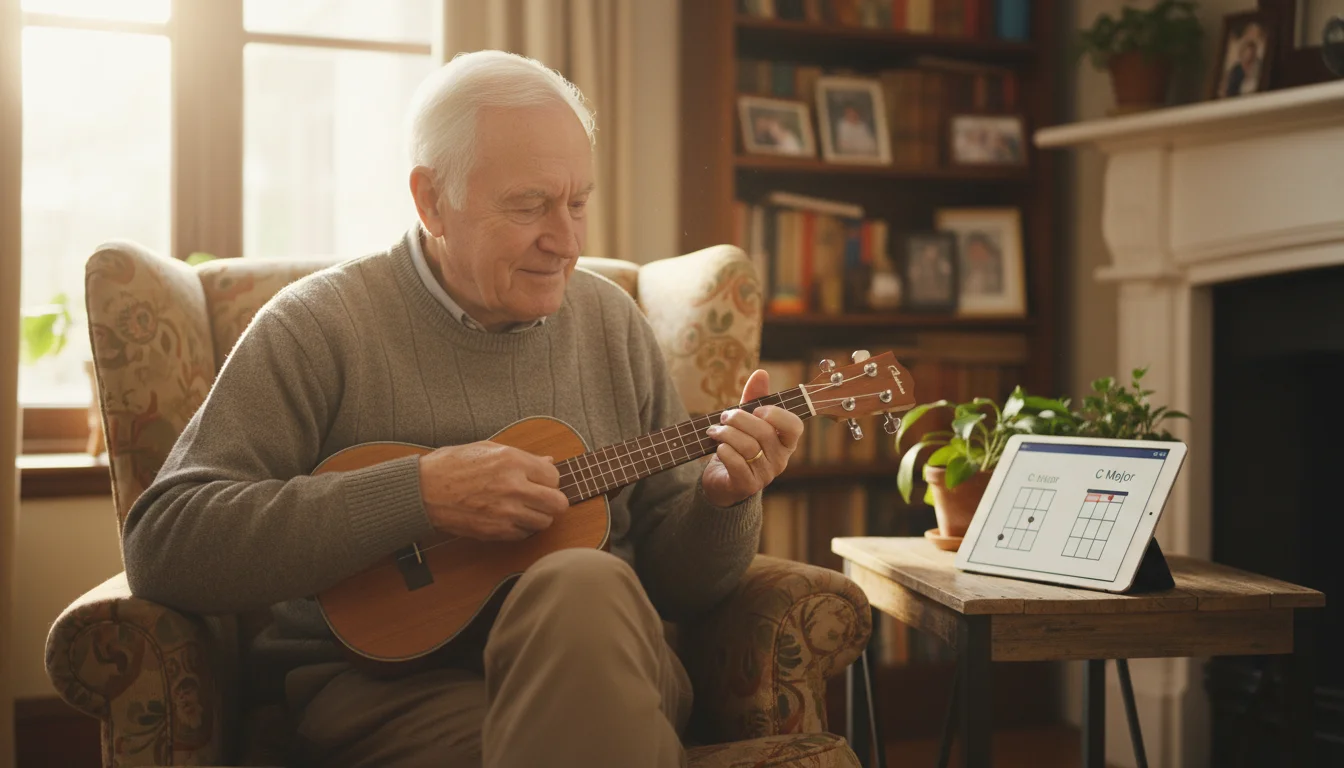
Learn to Play a Musical Instrument
The ‘Why’: It’s never too late to learn music. Engaging with an instrument is a fantastic workout for your brain. It strengthens the connections between different brain regions, improving memory, concentration, and problem-solving skills. The process of learning and mastering a new piece brings immense satisfaction, and the music itself can be incredibly soothing and emotionally expressive. This is one of the most engaging senior hobbies for cognitive health.
The ‘How’:
– Pick an accessible instrument. The ukulele is a wonderful choice for beginners; it’s affordable, portable, and relatively easy to learn a few chords. A simple keyboard is another great option, as it helps visualize musical concepts clearly.
– Utilize online resources. Websites like YouTube have thousands of free tutorials for every instrument and skill level. You can learn at your own pace from the comfort of your home.
– Look for local group lessons. Check with your local music store or community center. Group lessons for seniors can be a fun, low-pressure way to learn and socialize.

Find Purpose in Volunteering
The ‘Why’: Contributing to a cause you care about is one of the most effective ways to boost your mental well-being. Volunteering provides a powerful sense of purpose and meaning, which can sometimes feel diminished after retiring. It combats loneliness by creating new social networks and helps you feel connected to your community. Studies have shown that people who volunteer regularly report higher levels of happiness and a greater sense of fulfillment.
The ‘How’:
– Match your passion with a need. Do you love animals? Volunteer at a local shelter. Are you passionate about reading? Help out at a library or mentor a child. Enjoy being around people? Hospitals and museums often need greeters.
– Start with a small commitment. You don’t have to commit to 20 hours a week. Start with just a few hours a month to see if you enjoy the role and the organization’s environment.
– Explore skills-based volunteering. Consider offering your professional skills. A former accountant could help a nonprofit with its books, or a retired marketer could assist with a newsletter. Websites like VolunteerMatch.org can help you find local opportunities.
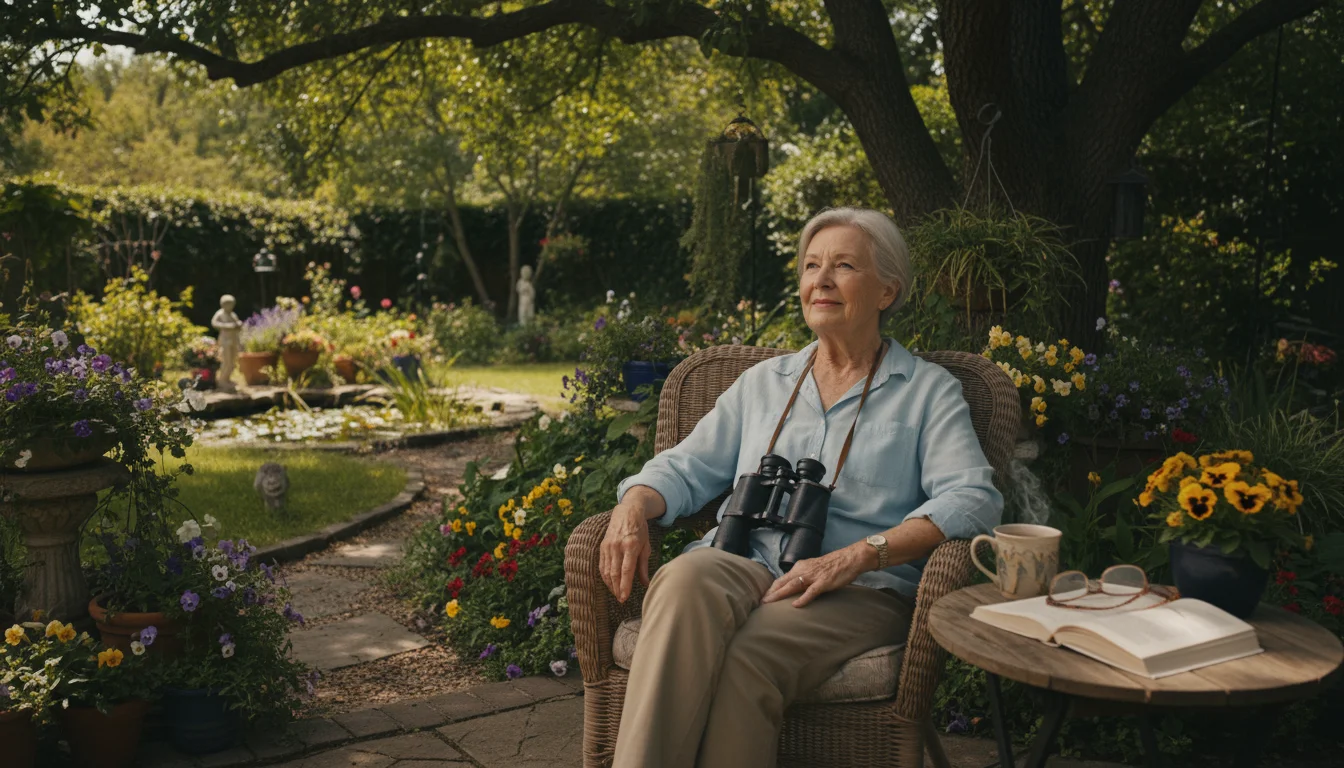
Embrace the Calm of Bird Watching
The ‘Why’: Bird watching, or “birding,” is a wonderfully meditative hobby that encourages you to slow down and be fully present in the moment. It sharpens your observation skills and connects you with the natural world, which has proven benefits for reducing stress and anxiety. It’s a low-impact activity that gets you outdoors for fresh air and gentle exercise, whether you’re strolling through a park or simply sitting in your own backyard.
The ‘How’:
– Begin in your own backyard. You can start this hobby today by simply noticing the birds outside your window. No special equipment is needed to begin.
– Invest in a pair of binoculars and a field guide. As you get more interested, a decent pair of binoculars will greatly enhance your viewing experience. A regional field guide or a free app like Merlin Bird ID can help you identify the birds you see.
– Attract birds to you. Setting up a simple bird feeder or a birdbath is an excellent way to enjoy a variety of species without leaving home. It’s a perfect solution for those with limited mobility.
– Join a local group. The Audubon Society and other local birding clubs are incredibly welcoming to newcomers and often host guided walks that are perfect for learning.

Explore Your Creativity with Painting or Drawing
The ‘Why’: Engaging in a creative art form like painting or drawing is a fantastic way to express emotions without words. It’s a relaxing and immersive activity that can quiet a busy mind and improve focus, a state often called “flow.” You don’t have to be a professional artist to reap the benefits; the process itself is what matters. It’s a wonderful way to build new skills and see the world from a more observant, colorful perspective.
The ‘How’:
– Start with a simple medium. Watercolors are a popular choice for their gentle, forgiving nature. Adult coloring books paired with a set of colored pencils are another low-pressure way to dive into creative expression.
– Purchase a starter kit. Your local art supply store will have all-in-one kits for beginners that include everything you need to start, removing the guesswork.
– Find a class or workshop. Look for beginner art classes at a senior center, community college, or local art studio. These provide expert guidance and a supportive atmosphere to create alongside others.

Travel the World Through Cooking
The ‘Why’: Cooking is a hobby that engages all your senses—touch, taste, smell, sight, and even sound. Exploring new recipes and cuisines keeps your mind active and learning. The focus required for following a recipe can be a form of mindfulness, and the reward is a delicious meal that you can be proud of. It’s also an incredibly social activity; sharing food you’ve made is a universal way to connect with friends and family.
The ‘How’:
– Pick a cuisine and start simple. Are you curious about Italian food? Start with a basic Cacio e Pepe pasta recipe. Intrigued by Mexican flavors? Try making fresh guacamole. The internet is filled with simple, step-by-step video recipes.
– Host a potluck or recipe club. Invite friends to a themed dinner where everyone brings a dish from a specific country. Or, start a club where you all try the same new recipe each month and compare notes.
– Take a cooking class. Many kitchen supply stores and community centers offer hands-on cooking classes that are both educational and fun.

Uncover Your Roots with Genealogy
The ‘Why’: Researching your family history is like being a detective in your own life story. This hobby provides significant intellectual stimulation as you piece together clues, solve puzzles, and learn about history through the lens of your ancestors. It fosters a powerful connection to your heritage and can give you a deeper understanding of who you are. The legacy you create by documenting your family tree is a priceless gift to your children and grandchildren.
The ‘How’:
– Start with what you know. Begin by writing down your own information and that of your parents and grandparents. Interview older relatives to gather stories, names, and dates.
– Use library resources. Many local libraries offer free access to powerful genealogy websites like Ancestry.com and HeritageQuest. Librarians are often happy to help you get started.
– Organize your findings. Use a simple notebook or a free online tool to keep track of the information you uncover. Seeing your family tree grow is incredibly rewarding.
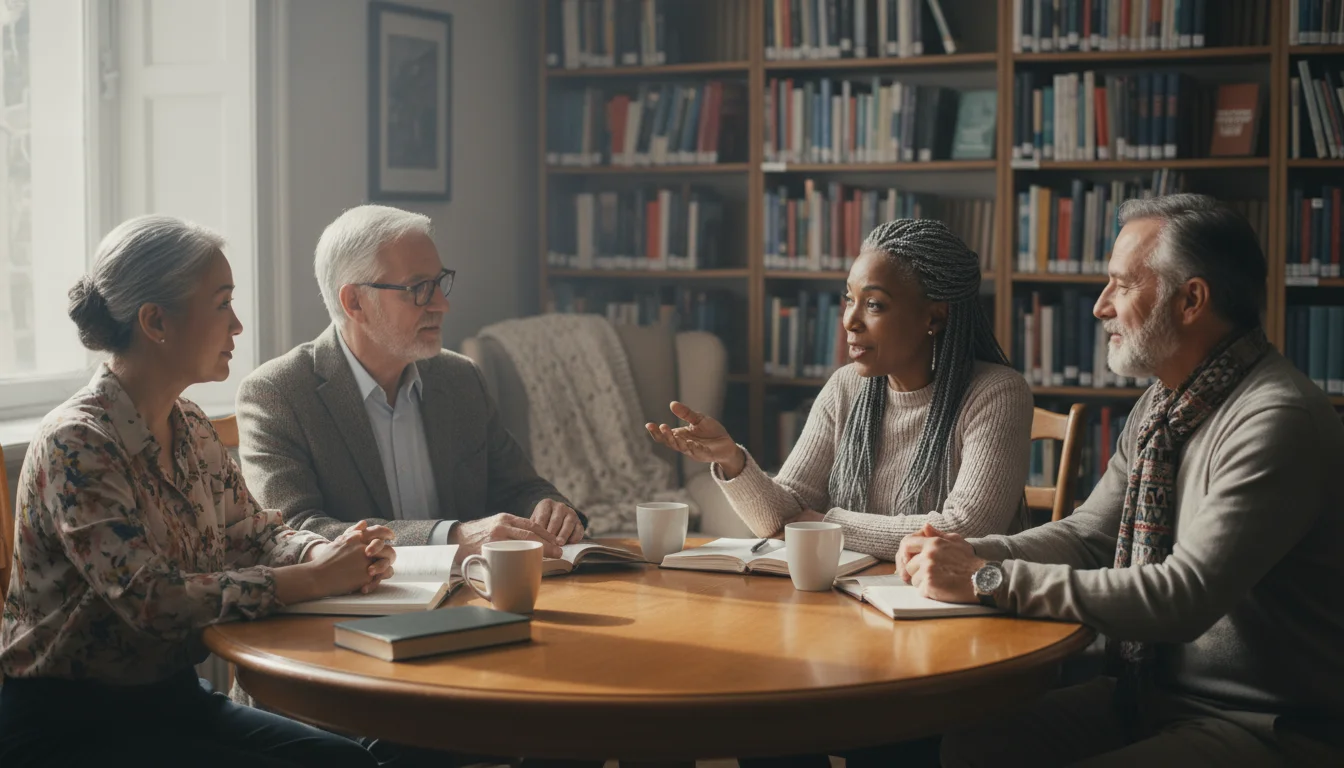
Stimulate Your Mind in a Book Club
The ‘Why’: Reading is a wonderful solo activity, but joining a book club transforms it into a vibrant social and intellectual experience. Discussing a book with others exposes you to different viewpoints, deepens your understanding of the material, and keeps your critical thinking skills sharp. It provides a regular, low-stress social event to look forward to, which is key for combating isolation. A book club is one of the most classic and effective meaningful hobbies for seniors.
The ‘How’:
– Check your local library. Libraries are the number one resource for finding established book clubs. They often have several groups to choose from, meeting at different times.
– Look in local bookstores and community centers. Many independent bookstores and senior centers host their own clubs.
– Start your own! It’s easier than you think. Invite a few friends or neighbors who enjoy reading. Decide on a first book, pick a date to meet, and you’re off! Keep it casual and focused on enjoyable conversation.
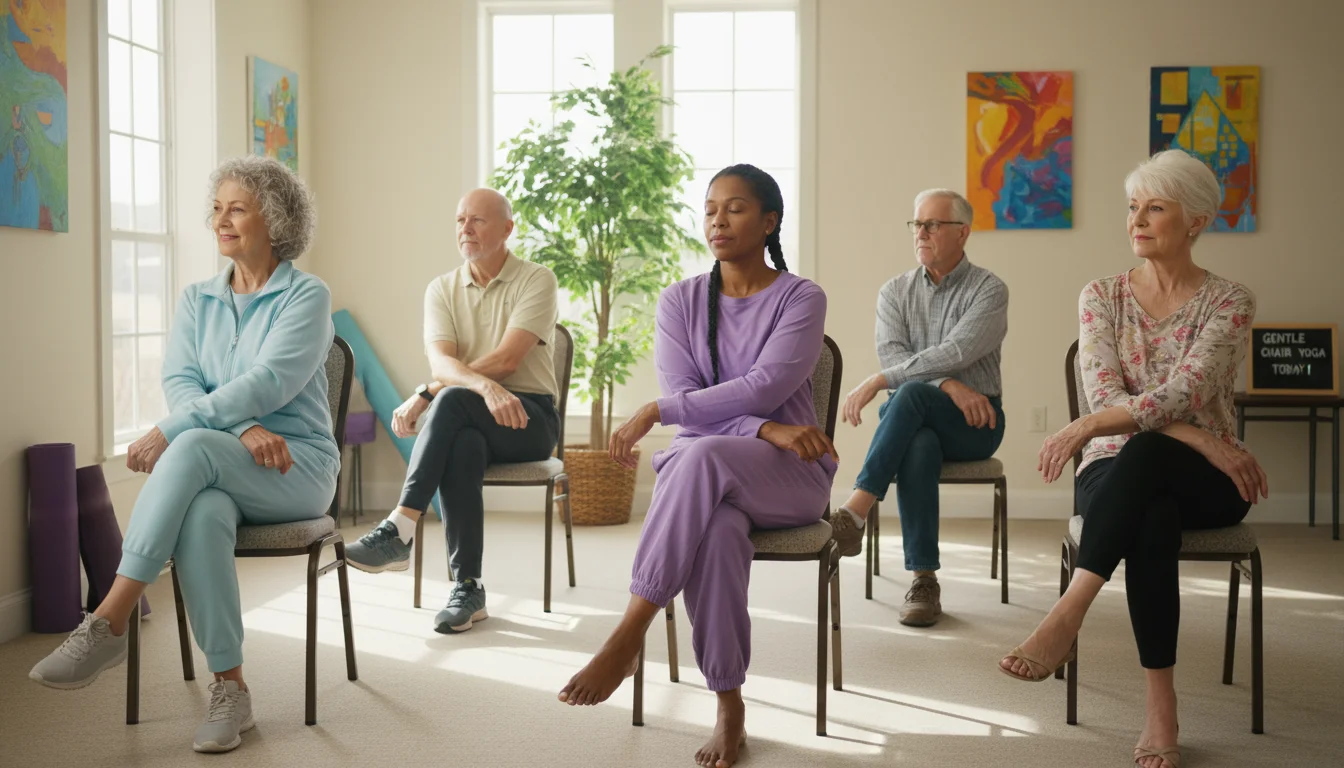
Connect Mind and Body with Yoga or Tai Chi
The ‘Why’: Gentle, mindful movement practices like yoga and Tai Chi are phenomenal for both physical and mental well-being. They focus on the connection between your breath and your movements, which is incredibly effective at calming the nervous system, reducing anxiety, and improving mental clarity. Physically, these practices enhance balance, flexibility, and strength, which are crucial for maintaining independence and preventing falls.
The ‘How’:
– Look for senior-specific classes. Search for “gentle yoga,” “chair yoga,” or “Tai Chi for seniors” classes. These are designed with modifications to be safe and accessible for all fitness levels.
– Find a reputable instructor. A good instructor will emphasize safety and encourage you to listen to your body, never pushing you into a pose that causes pain. Check local gyms, yoga studios, and senior centers.
– Try it at home. There are many high-quality, free videos on YouTube specifically for seniors. “Chair yoga” is a wonderful option that allows you to get all the benefits while seated.
Embracing a new hobby is an act of self-care. It’s an investment in your mental, emotional, and cognitive health that pays wonderful dividends in happiness and vitality. The key is to choose something that genuinely sparks your interest and brings you joy. Be patient with yourself as you learn, and remember that the goal is not perfection, but participation. We encourage you to try one of these engaging hobbies and see how it enriches your life.
For expert guidance on senior health and finance, visit Eldercare Locator, AARP and Alzheimer’s Association.
|
Fact-Checked Content
Our editorial team reviews all content for accuracy and updates it regularly. Learn about our editorial process →
|


















